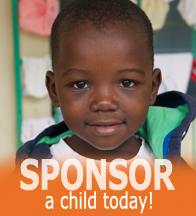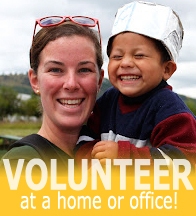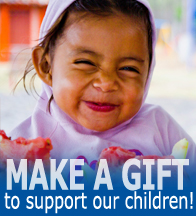Our Children
| The boys and girls at Nuestros Pequeños Hermanos (Spanish for “Our Little Brothers and Sisters”) are vulnerable and disadvantaged. Many have suffered physical and/or verbal abuse, have lived in horrible conditions, and have been shuffled from one family member to another. Like all children, they are seeking love and security, a place they can call home. They are referred to NPH by family members, neighbors or government agencies. When they come to NPH, they range in age from newborn to teenager and are told they will never be asked to leave. … Most of the children have contact with their extended families. There are scheduled “Visitors Days” during the year in which children receive family members. Older siblings, uncles, aunts, cousins, and sometimes a parent or grandparent, arrive and spend the day on the NPH grounds usually bringing food and beverages. Older teens usually have a free day in which they are able to visit their family if they choose. … There is no fixed age at which the children leave NPH. They stay until they feel prepared to live independently. Some children may leave NPH and start working after finishing secondary school. Others may stay and attend high school, take vocational training or study at a university. Additionally, when a child has completed his or her education, or perhaps before going on to higher academics, they are expected to give back to their family by completing a year of service (año de servicio or año familiar). In almost all cases, they gladly return to work with younger children, serve in the kitchen, offices, school or farm. During their Family Service, they continue to be supported by NPH. … Thousands of pequeños are now self-sufficient adults with families of their own. Many are educators, doctors, accountants, carpenters, farmers, mechanics, artists, administrators and social workers. Some work for NPH in one of the nine countries where they have homes. Having learned the NPH philosophies of sharing and giving back, others support NPH USA and NPH by sponsoring children, organizing fundraisers, or attending special events and serving as ambassadors for the organization. … … |
   |







